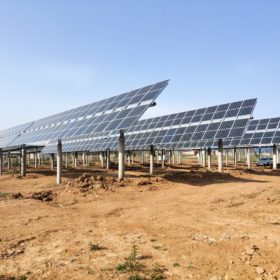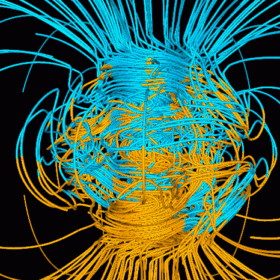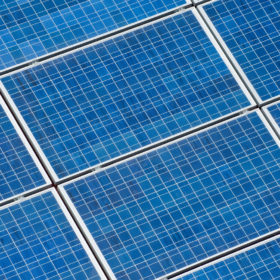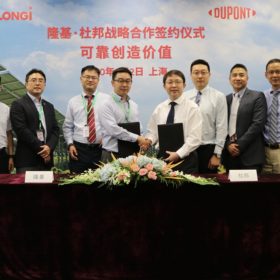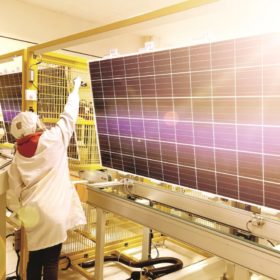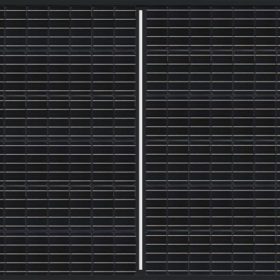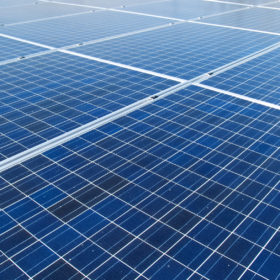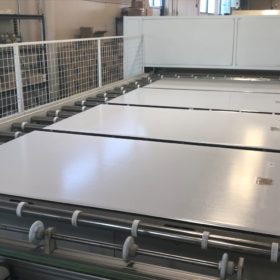Trina Solar launches TrinaPro Mega ultra-high-power PV solution
As the solar industry starts to embrace ultra-high-efficiency modules, the Chinese PV heavyweight has unveiled TrinaPro Mega, the first integrated solar system in the world that incorporates 500 W+ modules.
US module shipments spiked in quantity, plunged in price amid pandemic
Manufacturers shipped about 2.05 GW of PV modules in March, before plummeting to 1.24 GW in April. But while shipments slowed, the cost per watt peak reached a record low.
Earth’s magnetic field affecting PV panel performance
Researchers in Kenya say the geomagnetic field could reduce solar panel conversion efficiency 0.21% between the equator and a 50-degree latitude. Their analysis showed the complex magnetic field can determine increases in module fill factor and falls in maximum power.
First Solar backs carbon pricing for wholesale electricity
First Solar has backed carbon pricing in comments submitted to the U.S. Federal Energy Regulatory Commission. The company also co-founded a global policy institute to support carbon pricing as a “cost-effective, equitable and politically viable climate solution.”
Game theory for solar module manufacturing
Researchers in Iran have applied the Stackelberg leadership model to determine whether the creation of a closed-loop solar module supply chain – including panel refurbishing – is feasible. According to their findings, a similar supply chain may only be set up with public subsidies, which would ensure that costs for R&D, module production, and recycling are distributed between the government and all the chain’s players.
Longi and DuPont expand collaboration on product innovation
The companies aim to jointly develop higher quality and more competitive cells and modules that will in turn ensure the viability of PV power plants.
Canadian Solar sees turnover and profits surge
The Chinese-Canadian solar manufacturer reported a 41% year-over-year increase in total module shipments to 2.2 GW in the first quarter. Revenue grew by 70% to $826 million, while net profit improved significantly from $17.2 million to $110.6 million.
Sharp unveils black, half-cut-cell module
The solar panel will be part of the half-cut-cell series recently launched by the Japanese manufacturer and the company claims it is ideal for rooftop PV projects with aesthetic requirements. The 19.0%-efficient product has a power output of 320 W.
New method to measure cell voltages in operational PV modules
Scientists in Japan have proposed a new model to estimate cell voltages in solar modules by irradiating the cells with a weak modulated laser light. The method could be used to detect hot spots and other panel-degradation issues, such as potential induced degradation (PID) peeling, cracking, and poor contacts.
New solar module backsheet based on polyamide
Backsheet manufacturer Tomark-Worthen LLC has developed a new polyamide backsheet under the U.S. Department of Energy’s Sunshot initiative. The product is based on a novel polyamide-ionomer alloy created by U.S. chemicals producer Dow. The alloy, as well as the other materials in the backsheet, are stabilized with a UV/anti-oxidant package that slows down the damaging effects of ultraviolet radiation. The manufacturer claims that the backsheet is 25-30% more affordable than high-efficiency fluoropolymer products.
